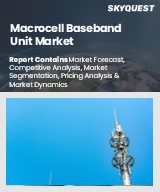
|
시장보고서
상품코드
1623604
미래의 전자상거래 주문 처리를 형성하는 미중 무역 관계 : 정책 변화, 잠재적 영향 설명U.S.-China Trade Relations Shaping Future eCommerce Fulfillment: Policy Changes, Potential Impacts Explained |
||||||
이 보고서는 IDC가 주문 관리 시스템(OMS) 소프트웨어 시장의 성장에 대한 시장 전망을 어떻게 조정하고 있는지 살펴보고, 이러한 모델 변경에 대한 분석가의 근거를 자세히 설명합니다. 새로운 예측에 따르면 규제 변화, 미중 무역 긴장, 미국 내 B2B 물류 솔루션에 대한 수요 증가로 인해 OMS 시장이 5년간 14.8%의 연평균 성장률을 기록할 것으로 예상됩니다. 이러한 복잡한 거시경제 및 정치 역학 관계를 본문에 쉽게 이해할 수 있는 언어로 정리하여 복잡한 모든 요소를 하나의 논제로 묶어 설명합니다. 기술 구매자를 위한 실행 가능하고 실용적인 투자 조언이 문서 마지막에 제공됩니다. IDC의 글로벌 디지털 커머스 전략 리서치 디렉터인 Heather Hershey는 "최소 기준치의 감소는 이미 미중 무역 역학을 점진적으로 재편하고 있으며, DTC 이커머스 모델을 보유한 중국 제조업체들이 DTC 배송에서 미국으로의 대량 B2B 수입으로 전환하면서 가격을 인상하도록 강요하고 있습니다. 또한 홍콩과 중국 본토로부터의 저가 수입에 의존하는 미국 기업들은 관세 외에도 새로운 규정 준수 문제에 직면하여 디지털 상거래에서 상품 배송과 관련된 복잡한 데이터 흐름과 재고량 증가를 조율할 수 있는 자동화, 타사 물류 서비스, 공급망 관리 및 주문 관리 시스템에 대한 수요가 증가하고 있습니다."라고 말했습니다.
주요 요약
상황 개요
- OMS 시장 성장 예측
- 규제의 영향 분석
- 정치적 불확실성, 파퓰리즘, 그리고 세계 상업 무역에의 잠재적인 발본적 변화
- De Minimis 및 관세 확대 설명
- ePacket 설명
- 최악 시나리오 : 간소화된 전자상거래 소비자 가격 분석
- 미국의 정책 변경에 의해 미국 공급망 및 주문 관리 소프트웨어 수요가 가속할 가능성
- 결론
기술 구매자에 대한 어드바이스
참고 자료
- 관련 조사
- 요약
This IDC Perspective examines how IDC is adjusting its market projection for growth within the order management system (OMS) software market and explains the analyst's rationale for this change to the model in detail. The new forecast postulates that the OMS market is poised for a CAGR of 14.8% over five years, driven by regulatory changes, U.S.-China trade tensions, and increased demand for B2B logistics solutions in the United States. These complex macroeconomic and political dynamics are distilled in easily consumable language within the body of the document to help tie all the complex pieces together under a single thesis. Actionable, practical investment advice for technology buyers is offered at the end of the document. "The reduction in de minimis thresholds is already gradually reshaping U.S.-China trade dynamics, compelling Chinese manufacturers with DTC ecommerce models to raise prices as they pivot from DTC shipments to bulk B2B imports into the United States," says Heather Hershey, research director, Worldwide Digital Commerce Strategy at IDC. "In addition, American companies reliant on low-value imports from Hong Kong and mainland China face new compliance challenges in addition to the tariffs, driving demand for automation, third-party logistics services, supply chain management, and order management systems capable of orchestrating complex data flows and higher inventory volumes associated with shipments of goods in digital commerce."
Executive Snapshot
Situation Overview
- Growth Assumptions for the OMS Market
- Regulatory Impact Analysis
- Political Uncertainty, Populism, and Potential Sweeping Changes to Global Commercial Trade
- De Minimis and Tariff Expansion Explained
- ePacket Explained
- Worst Case Scenario: Simplified eCommerce Consumer Pricing Analysis
- U.S. Policy Changes Could Drive Accelerated Demand for Supply Chain and Order Management Software in the United States
- Conclusion
Advice for the Technology Buyer
Learn More
- Related Research
- Synopsis

















